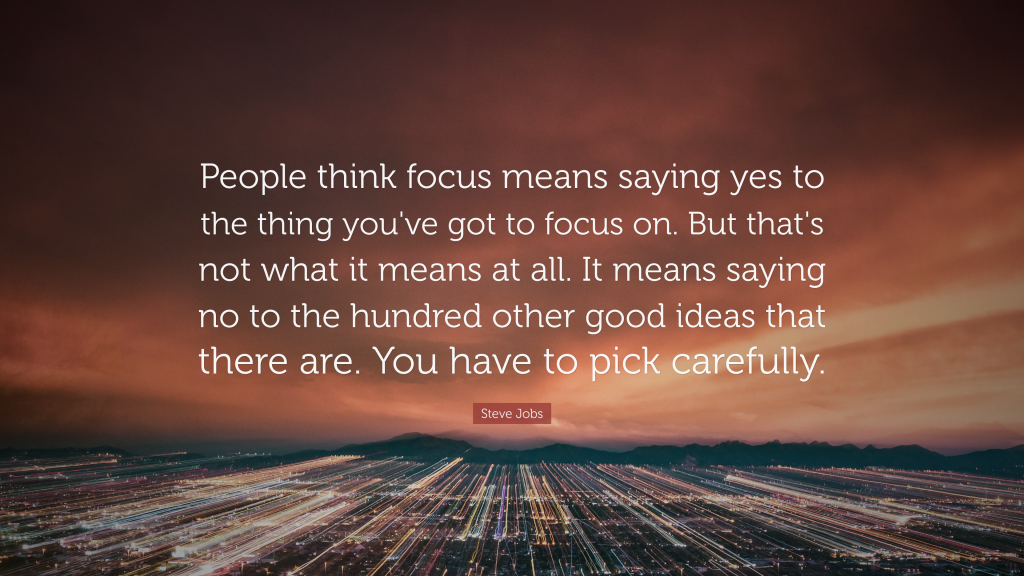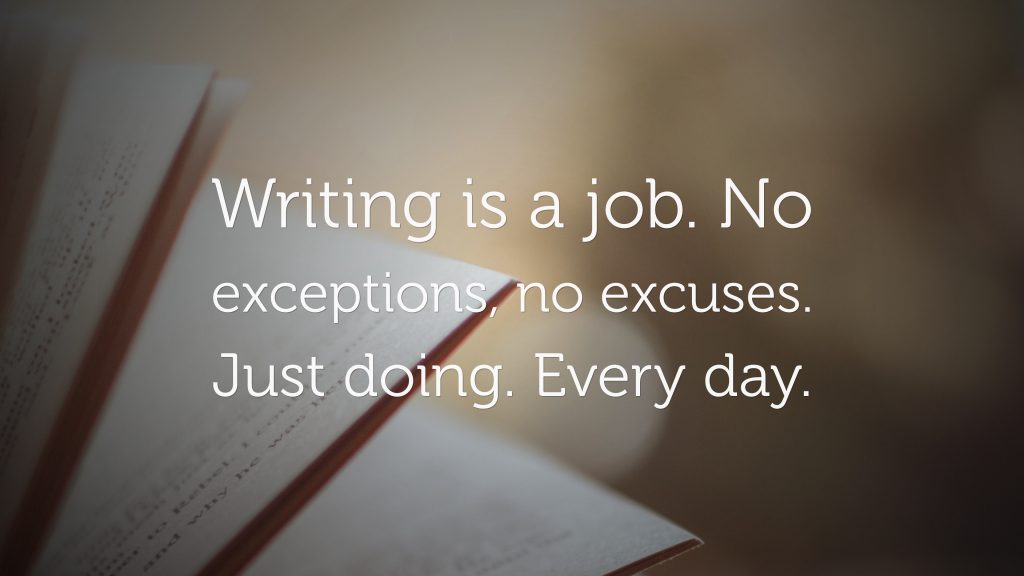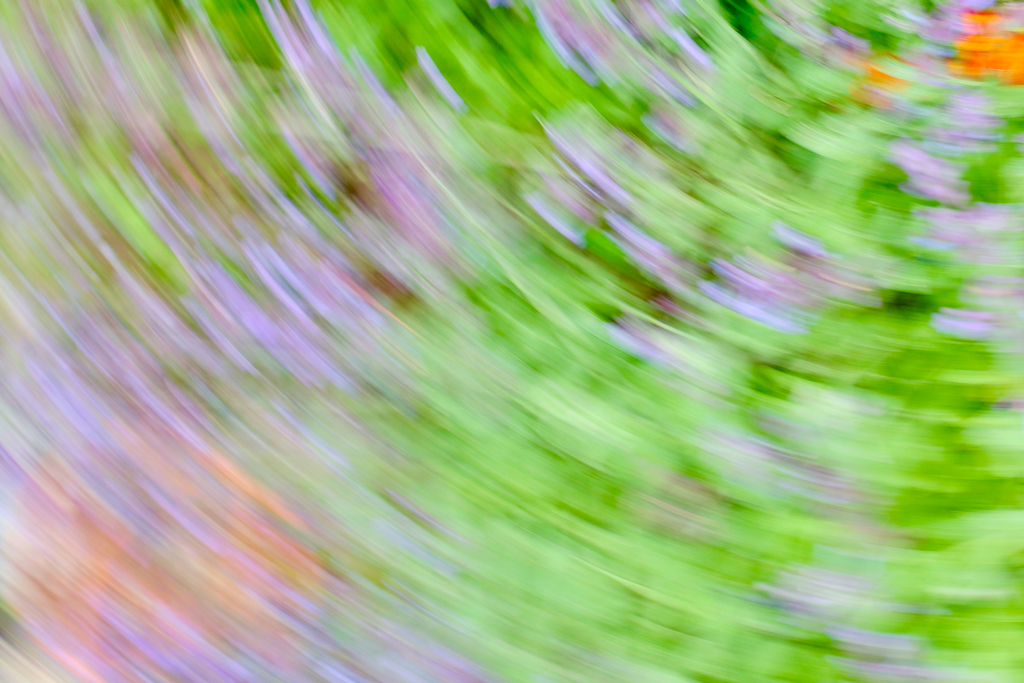
I weight train twice a week, Tuesday afternoons and Friday mornings. As I was lacing my shoes this morning, about to leave the gym, an old lady on her way in remarked, “Are you done already?” in a tone of surprise. It was 8:15 am. The gym opens at 7:30 am, and I was there on the dot. “All done! I’m here as soon as the gym opens and get it over with.”, I replied cheerfully. Not because I have this iron willpower or am the poster girl of self-discipline. In fact, I’m the exact opposite. But I’ve learned the hard way that I lose as soon as I start debating whether to train or not. So you see, one way of manifesting my creativity is coming up with better and better excuses for why I couldn’t train that day.
To cut a long story short, I found that the best way to deal with my penchant for making up excuses was to just do it. Just do it. Schedule the time in my calendar, have the gym clothes and the bag ready by the door, then be out of the house in minutes once the alarm clock rings. Not questioning the form of the day, not debating pros and cons, not making up an excuse. Just do it.
The crazy thing is that I love it once I’m at the gym! 45 minutes fly by, and I head home, feeling relaxed and not a little virtuous. It’s just the beginning that is hard, getting over the initial resistance.
Very similar to writing, I mused as I was heading home after another training session, gone from reluctance to exhilaration in minutes. I love having written. But starting to write? Pure hell.

Be Your Own Boss
You have to be your own slave master and be willing to hold the whip yourself if you want to write. Nobody is going to do that for you. Unlike a job where you have a manager to push you, writing demands to be your own boss. Nobody will set your deadlines and goals, monitor your progress, or demand status reports. You’re on your own.
If your dream is to write and you don’t write, nothing happens. Apart from the soul-wrenching fact you haven’t written, that is. And guess what? If you don’t hold yourself accountable and push yourself, if you don’t force yourself to stick to your routines and do the work, if you don’t write, in other words – nobody will care. NOBODY WILL CARE. It’s your dream, not other people’s. At best, they might feel sorry for you if you failed to produce the science-fiction novel of your dreams that you talked so much about. But that’s it, a few fleeting seconds and “I’m sorry it didn’t work, mate!”. Then they move on with their lives, leaving you with your unfinished novel and the bitter taste of failure in your mouth.
How do you move the needle? How do you push through that initial resistance, that apparently insurmountable mountain blocking your path? How do you start writing even when you don’t want to?

The Power of Self-Discipline
Self-discipline is what takes you from dreaming to fulfilling your dream. Self-discipline is doing what you must do to reach your goals, even when you don’t want to. Especially when you don’t want to do it. Have you noticed how tempting house cleaning, for instance, is when you have to do something you don’t want to do? Arranging your drawers is suddenly a delight, not a chore. Sorting your books by color seems the best use of your time. Your mind, the traitor, gets creative and comes up with lots of other things you could do instead of writing.
And this is your chance when those treacherous ideas start to form. Nip them in the bud immediately. Don’t let that thought be fully formed or that idea take root in your mind because you’ve lost if they do. Push back directly. No is a powerful word; use it!
“No, I can’t wash the windows now; it’s my writing time.”
” No, I can’t arrange my socks now; it’s my writing time.”
“No! No distractions! It’s my writing time.”
Don’t negotiate or allow any discussions. Instead, decide that you’ll follow your plan for that day and do what you had planned to do, which was to write. Just do it. As simple as that. I didn’t say it was easy.

Make It Easier to Get Started
Can you make it easier?
Well, as a matter of fact, I can.
I prepare for writing as I prepare for my training, making it quick and easy to get started. This means setting the alarm in the evening, laying out the breakfast things in the kitchen, and making my workspace ready for a new writing session at the end of a writing session.
Workspace readiness is different for different people, as it should be. For my part, it involves tidying up my desk, removing coffee cups and cat hairs (if you have pets, you know what I mean), putting back papers and pens in their holders, and refilling the water bottle.
(Yes, the water won’t be super fresh the next morning, but you have no idea how treacherous filling a bottle can be! This is how it goes: I’ll walk to my desk, fully intending to write, then realize that I need water. I go to the kitchen and start filling the bottle, gazing through the window all the while. Then a deer runs past, or a squirrel jumps on the low stone wall or the sparrow hawk flies by. My curiosity picked, I leave the bottle on the counter and stand by the window to see what would happen next. That doe is usually not alone; her two fawns must be following shortly. That red squirrel is so cute; I can watch her shenanigans all day. Would the sparrow hawk just fly by or go for one of the small birds in the bushes? And so it goes, the monkey mind jumping from one thought to another. Half an hour has gone by before I’m back at my desk. Hence, I fill the bottle the night before. One source of distraction eliminated.)
When I sit at my desk in the morning, it’s a pleasure to see a well-organized workplace with everything I need in its place (including the water bottle). It’s easy then just to sit down and start working.
Getting started is still daunting, but I’ve found that stopping for the day when things go well works wonders. This way, I can start right away next time as I know exactly what to do. I don’t lose any time staring into space, paralyzed by the blank page. The start is already there, and the only thing I need to do is continue where I left it the day before. And once I’ve started, it’s easy to keep going.

And Maybe a Carrot?
I also like to use carrots, small rewards I give myself if I follow the plan. A small piece of chocolate, watching squirrels, going for a walk, creating a composite squirrel photo, or maybe buying a new book on a tough day. (You have no idea how many bad days I have!). Anything pleasurable, anything that I can look forward to, a carrot dangling in front of me to take me through the challenging moments, a motivator helping me stay focused when I’m struggling.
Besides, there’s a bonus: positive reinforcement. Every time I reward myself for having written, I teach that monkey brain that writing is a pleasurable thing, something I enjoy. Writing is joy, not anxiety. That will make associating writing with positive feelings rather than apprehension easier. In time, it becomes a habit. Wake up, have breakfast, sit down, and write. Repeat. And repeat. And repeat some more. Don’t overthink it; just do it. Wonderful things will happen to those who wait write every day, inspired or not.

Conclusion
Self-discipline is essential when it comes to writing. It is the ability to stay focused and committed to your goals, even when it’s hard. Remember the three things: make it easy to get started, say no and just do it, and reward yourself along the way.
You can’t change the past but you can still shape your future. So become your own boss and coach. Make choices today that will make your future better. If you sit down and write every day, even for a few minutes, in time, you’ll have a significant amount of writing done. A page a day means 365 pages at the end of the year and a lot of practice learning the craft.
In the long term, the reward of self-discipline is fulfillment. The opposite is regret. Nobody but you will care if your dream quietly dies on the way.
The pain of self-discipline will never be as great as the pain of regret.
Related Posts
- Just Do It!
- If You Want to Be a Writer, Write!
- The Perpetual Tide and Ebb of the Creative Process
- All Creation Is an Act of Faith
- Ray Bradbury’s Writing Advice For Writers To Be
- Keep Going: Cardio for Zombie Hunters and Writers
- How To Handle Creative Blocks & Avoid Distraction
If you liked this post, share it on your preferred social network or forward it to a friend.













